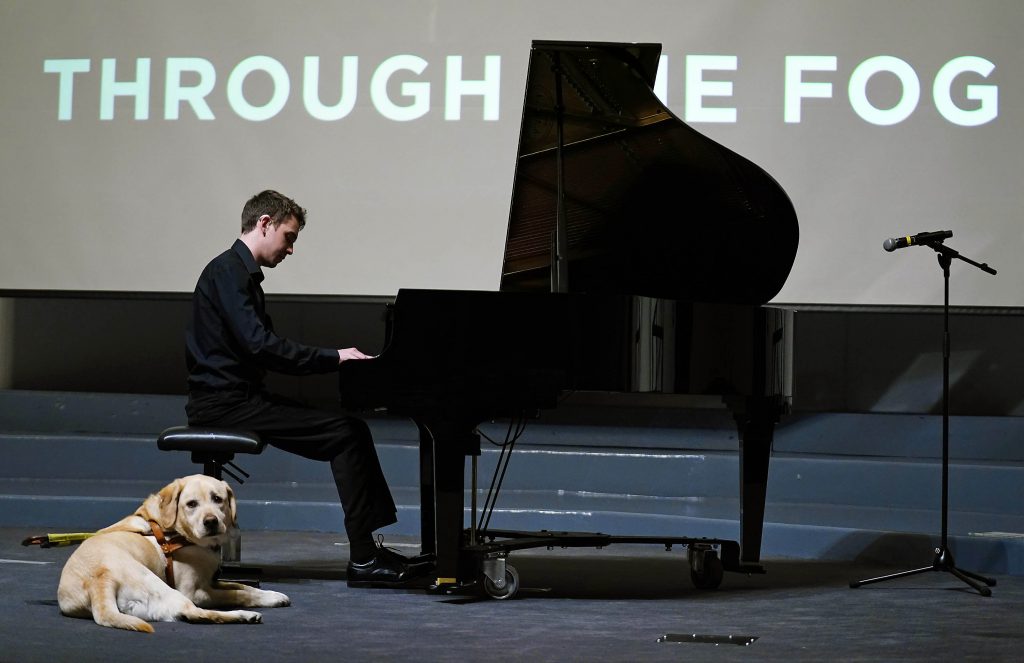
Photos by Ralph Freso / Slideshow
Brenden Sorensen’s fingers fly up and down the keyboard of the Kawai grand piano, sending the notes soaring on Wednesday night through Grand Canyon University’s Sunset Auditorium.
The audience is mesmerized, and not just by the GCU alumnus’ playing or the beauty of the music, but because he is able to perform despite his condition.
Sorensen, who has Usher syndrome, lives with hearing and vision loss, though he has never lost his love for music.
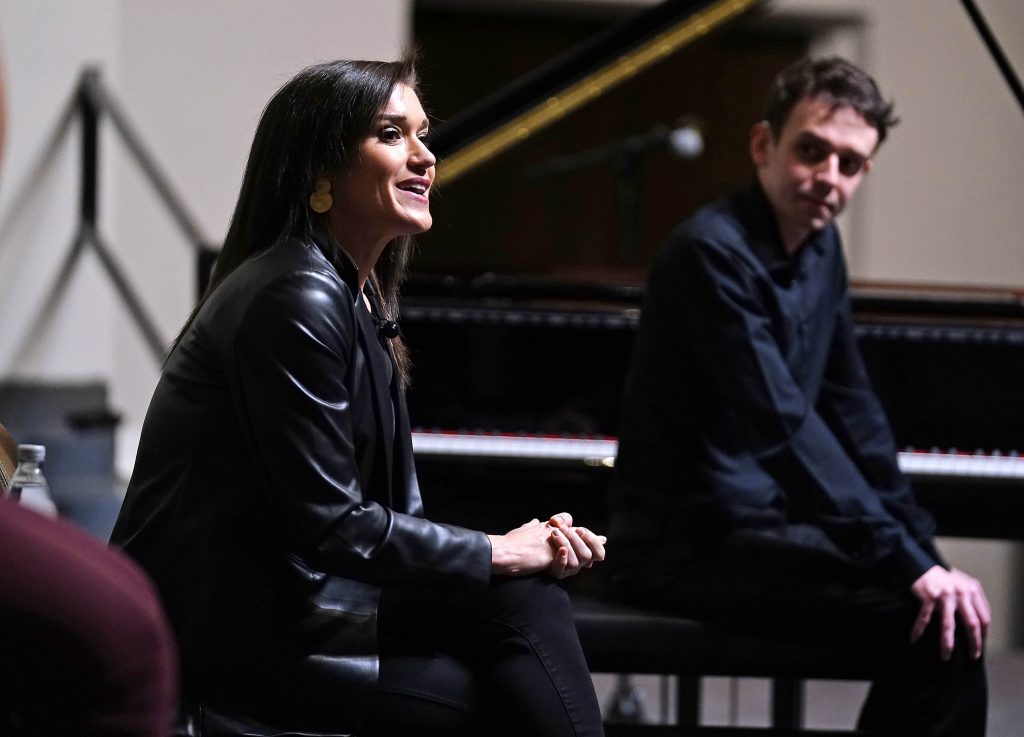
“It’s hard to give up on piano because I have been playing it all my life,” said Sorensen, who was on campus Wednesday for “Conversations with USH,” a storytelling series that educates and highlights the rare condition of combined vision and hearing loss. “Even if I go completely blind eventually, it doesn’t bother me much because there are blind pianists out there.
"I know God has a plan through that, so it’s not something I really worry about."
The event, co-hosted by GCU’s College of Arts and Media and the Usher Syndrome Society, also featured Rebecca Alexander.
“We do these public events to showcase the talents and creative abilities of people who live with Usher syndrome,” said Alexander. “When you think of someone living with deaf-blindness, it can sound very depressing. But there are many people with the condition who have very meaningful lives, so we focus on what we can do, not what we can’t.”
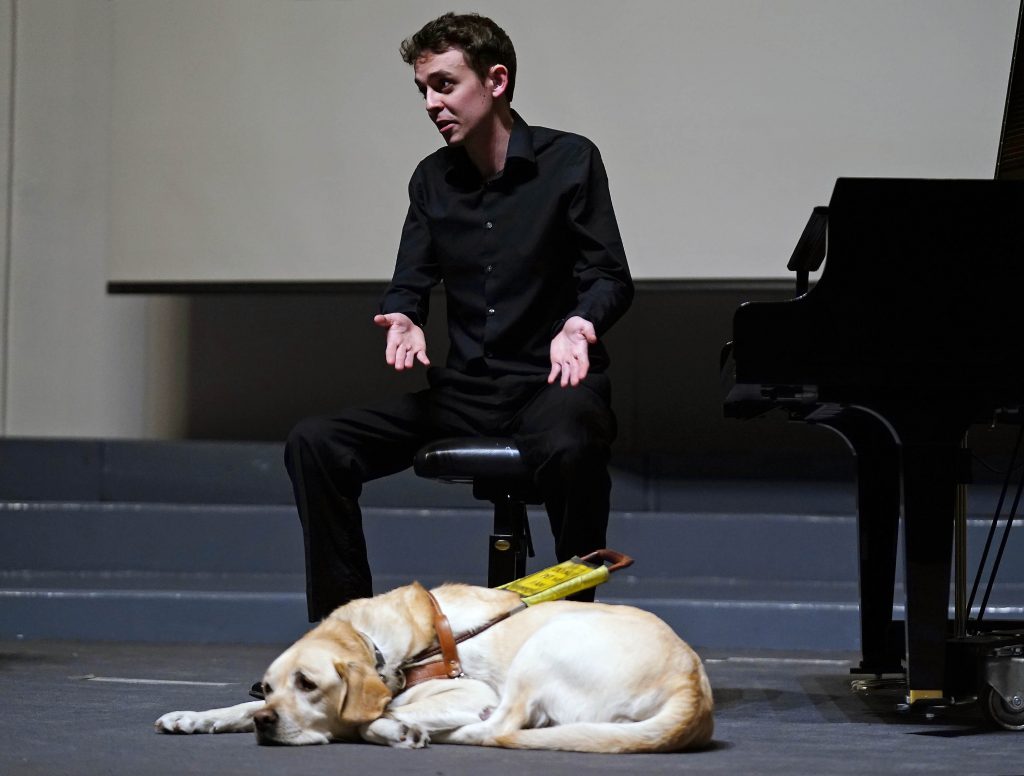
Sorensen, who earned his bachelor’s degree from GCU in piano performance, is an exceptional example of that. In addition to sharing his personal experience, he also performed his own compositions, showing how he uses his creative abilities to express himself and inspire those around him.
“The condition I have is Type 2 Usher syndrome. I was born with moderate to severe hearing loss, but the vision loss started at a later time,” Sorensen said. “Now I have vision loss known as RP, which is retina-pigmentosa. The peripheral vision deteriorates over time, and the tunnel vision gets smaller and smaller, until eventually I just won’t see anymore.”
The condition never kept Sorensen from pursuing his passion and practicing his talents. He has been playing piano since age 5. With his mom as his first piano teacher, and later working with other professional educators, Sorensen went on to college to study piano performance and graduated with his degree in 2022.
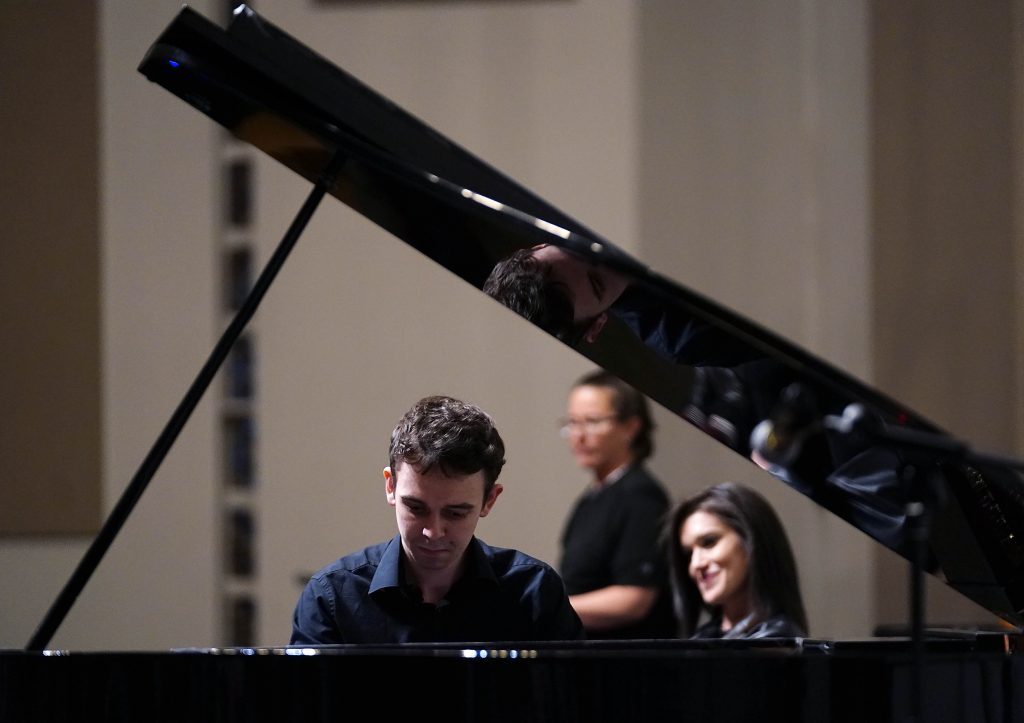
“Originally, I was thinking of doing commercial music elsewhere. But the GCU campus left such an impression on me after I toured it that I knew I wanted to be here. GCU didn’t have commercial music, but it did have piano performance, and that is when I decided to really stick with piano. That is when I began learning the really hard pieces and what it truly means to play the piano.”
The most frequently asked question of Sorensen is, how is he able to play the piano so well when he struggles to hear and see?
“To me, it feels normal having vision loss. I grew up with it, I have had it for quite a while, and I’ve just accepted it how it is.”
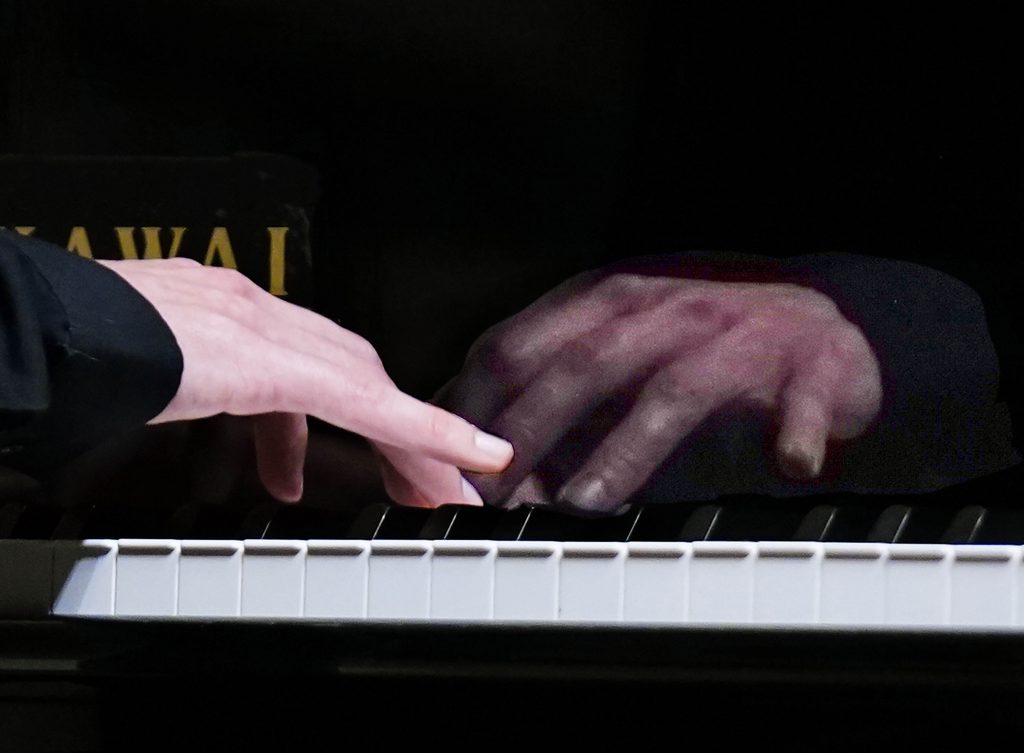
When he was younger, Sorensen had more of a field of vision, but because of the gradual loss, he has had to adapt and transition to heavily relying on his knowledge of the instrument’s layout. Now able to only see only one hand at a time, Sorensen learned to focus on his muscle memory and train himself to know how to differentiate between keys despite his hearing loss.
Beyond playing piano, Sorensen is also a composer and began composing more pieces when he was in college.
What originally starts off as an improvisation or a compilation of smaller compositions becomes one big work. He starts with simple notes, then creates melodies and eventually pieces it all together. Sorensen will finish off his weeks-long writing process by finally naming the musical pieces. He has composed a variety of works in a number of styles, including worship and ragtime.
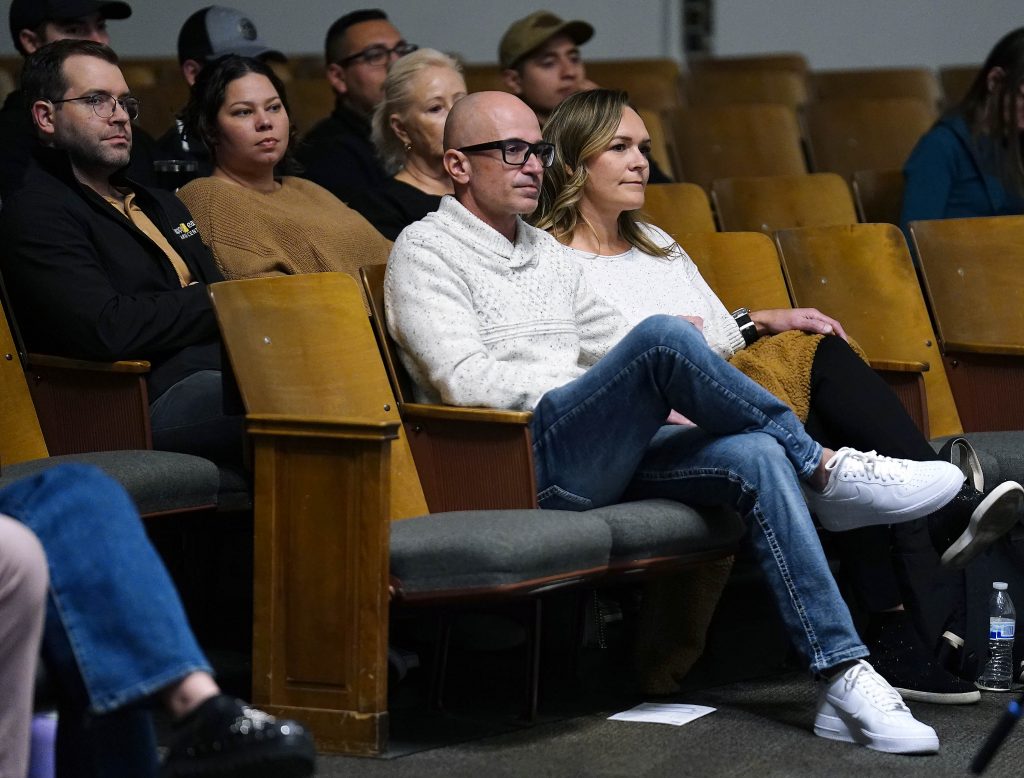
Along with sharpening his piano skills while at GCU, Sorensen also began growing in his faith in God. Before college, he said he did not believe in God, but then he began to understand his need for Christ.
From that point on, his faith began to shape a lot of things in his life. Most importantly, it shaped how he viewed his passion for music while having Usher syndrome.
“GCU is a great school and a great community. I have been impacted in many life-changing ways. One of the biggest things I have really learned is, ultimately, how much I need to rely on God. When you have vision loss, you kind of lose some of your freedom, but I still find it to be a gift from God. He has allowed this for my good, whether I understand it or not.”
Sorensen will continue to compose and perform, he said, for as long as he can, and he wants to continue to share his experiences with people and encourage them, whether it be regarding vision loss, music or faith in Christ.
“One thing I always encourage others with is, though you may have hearing or vision loss, or possibly a different condition, that is God’s plan for you. He can use that for your good.”
GCU staff writer Izabela Fogarasi can be reached at [email protected]



































































